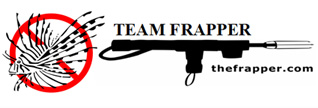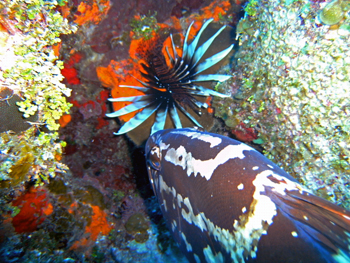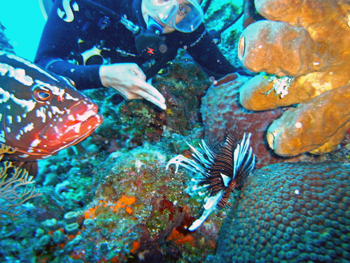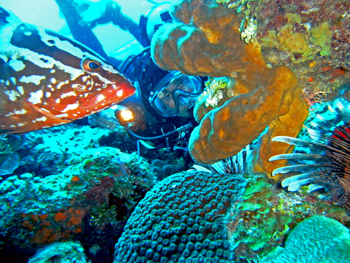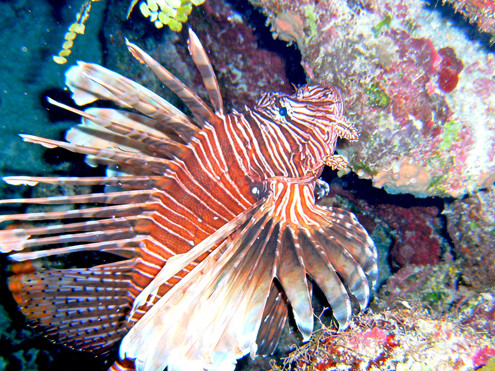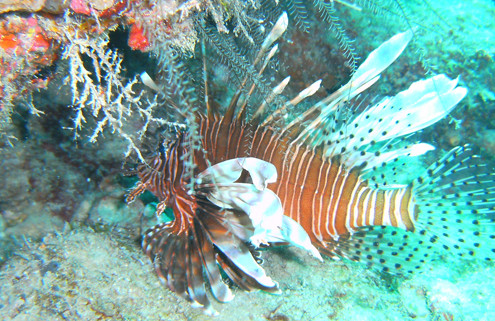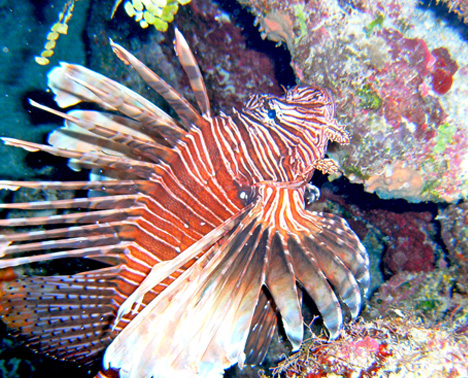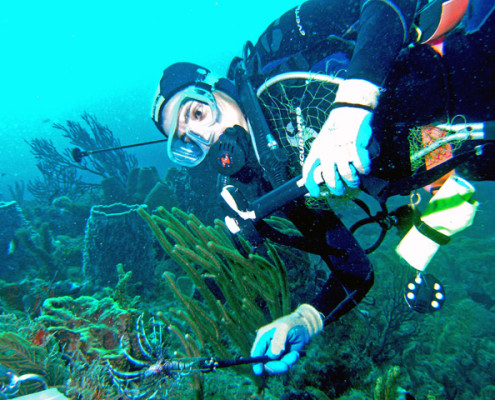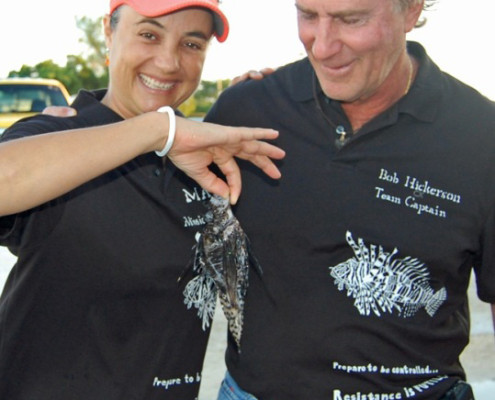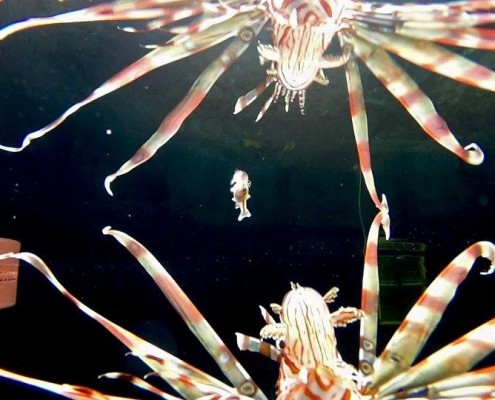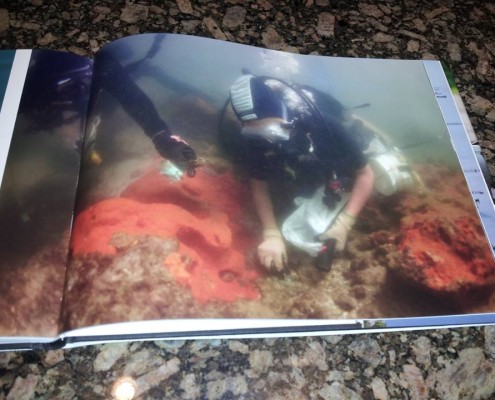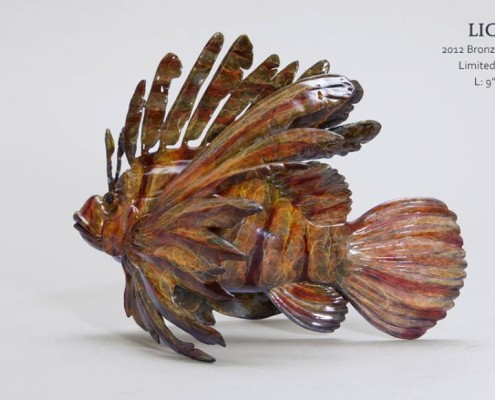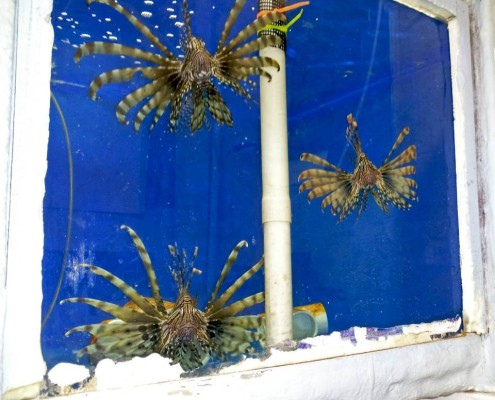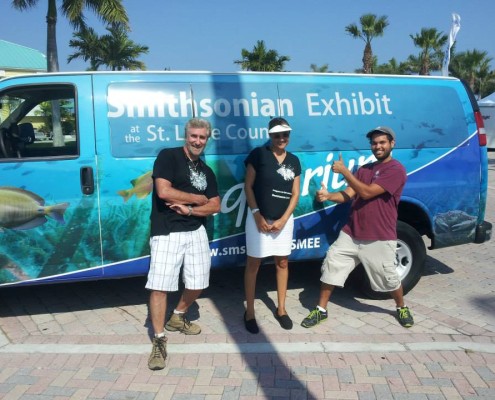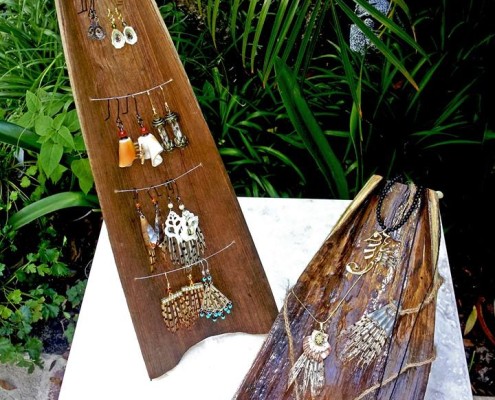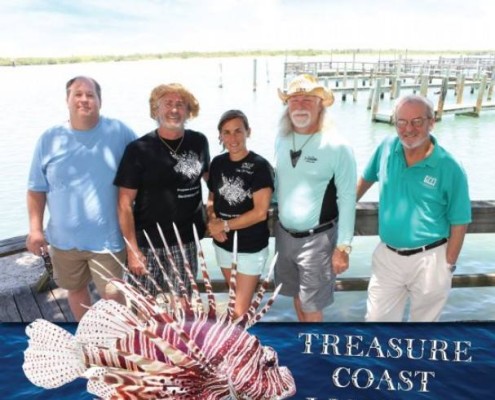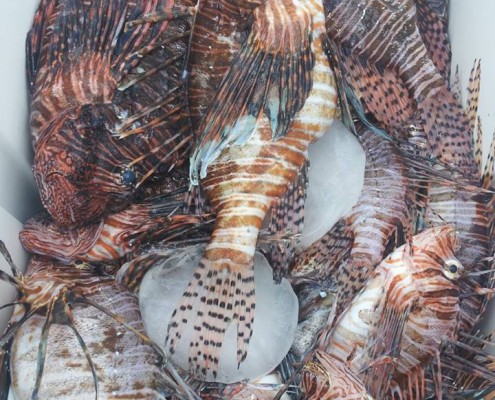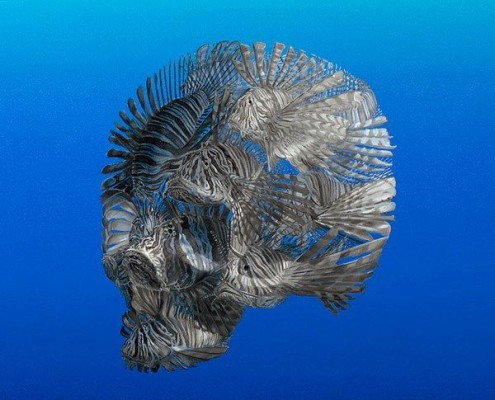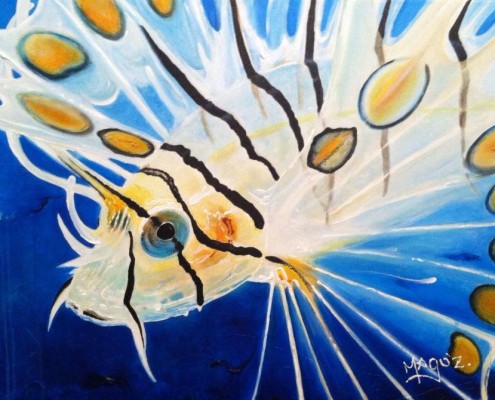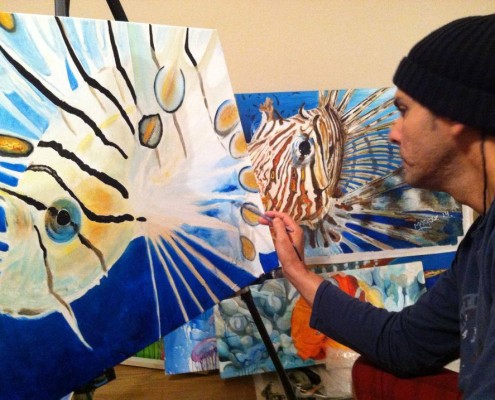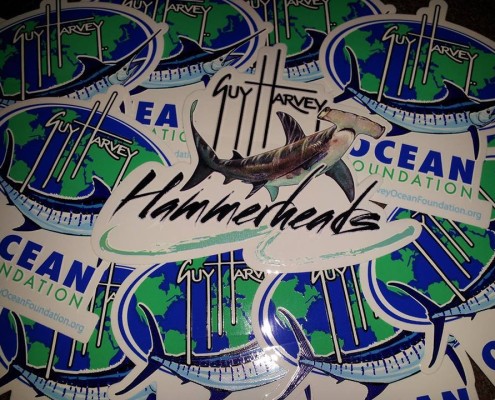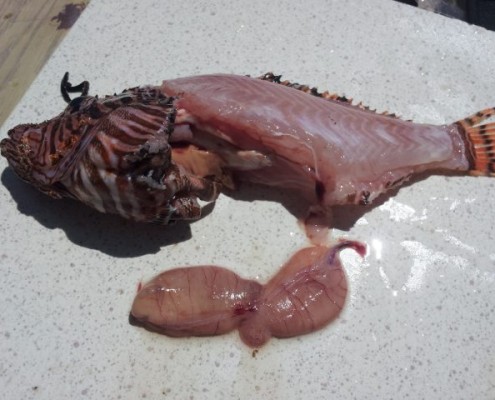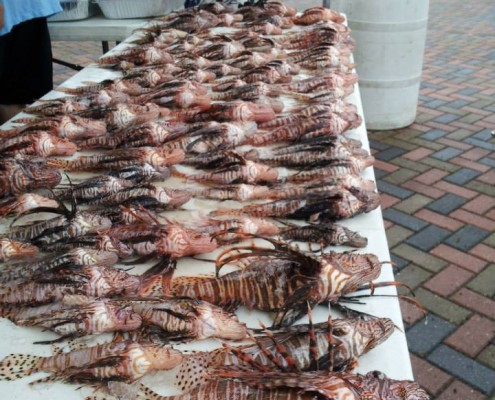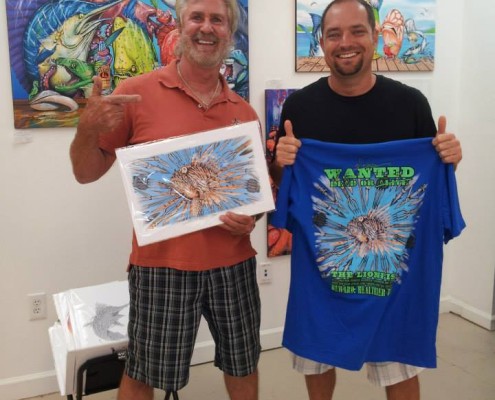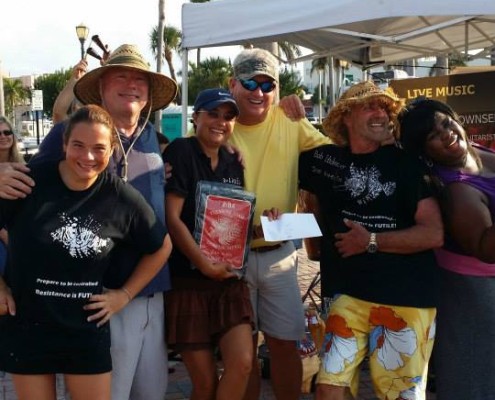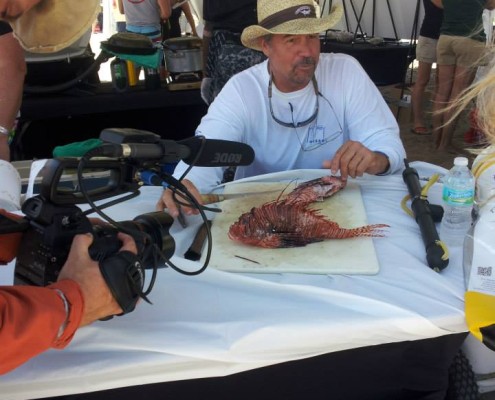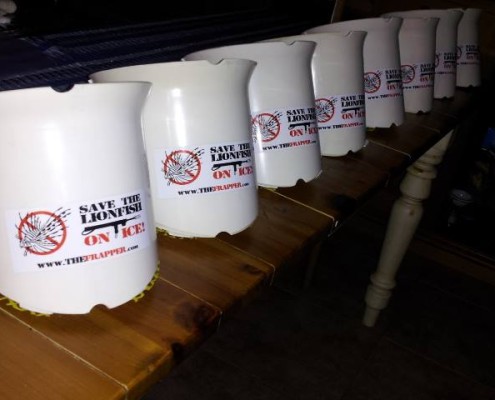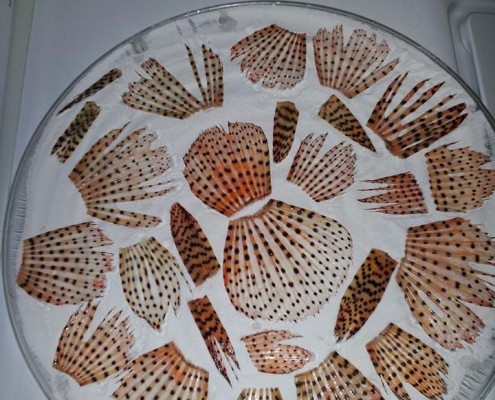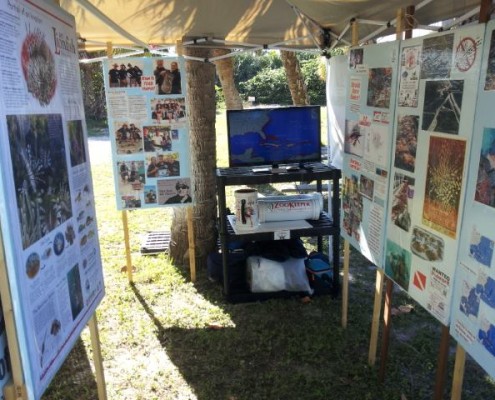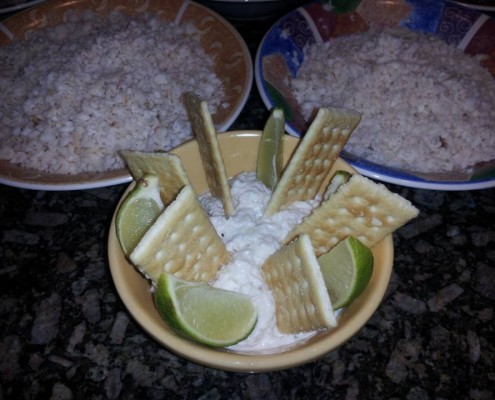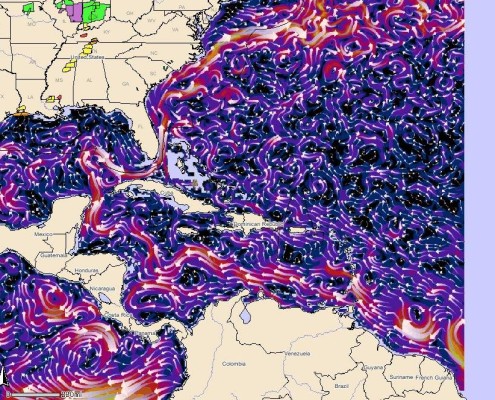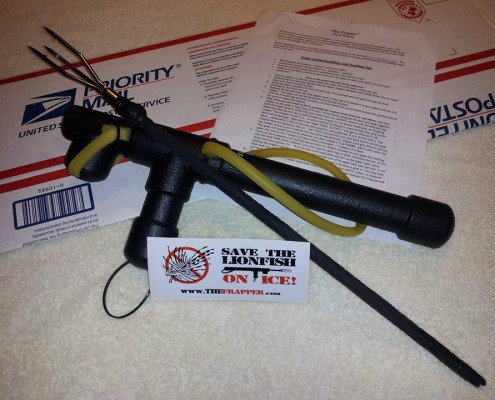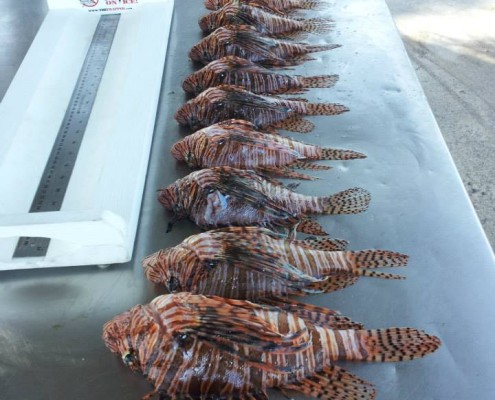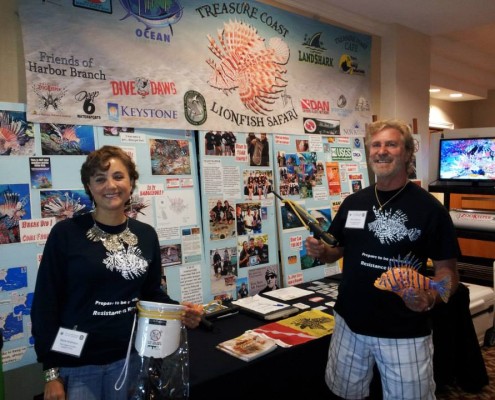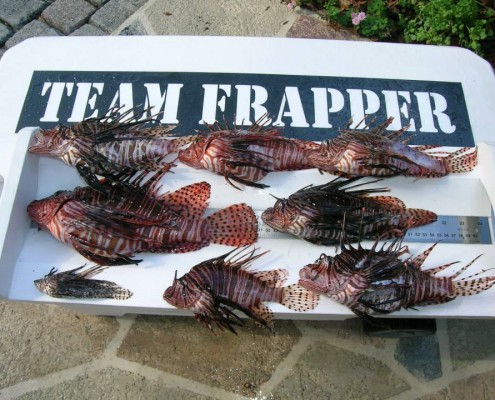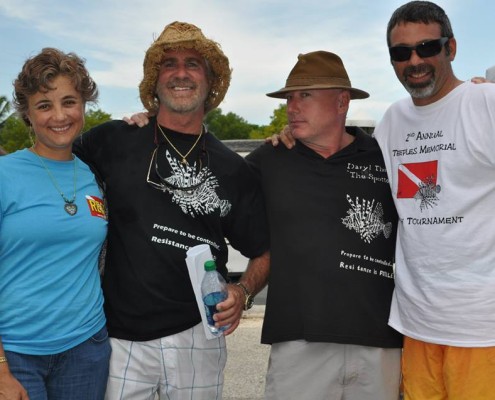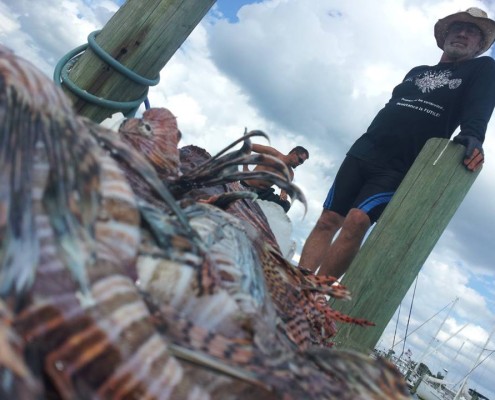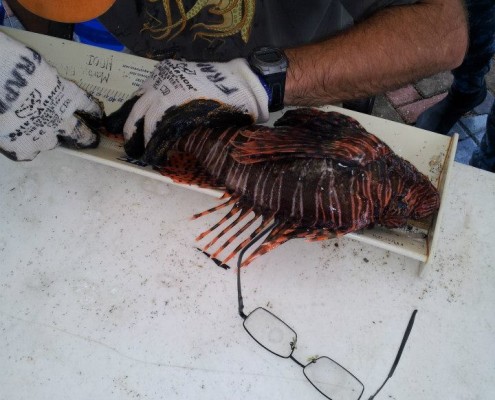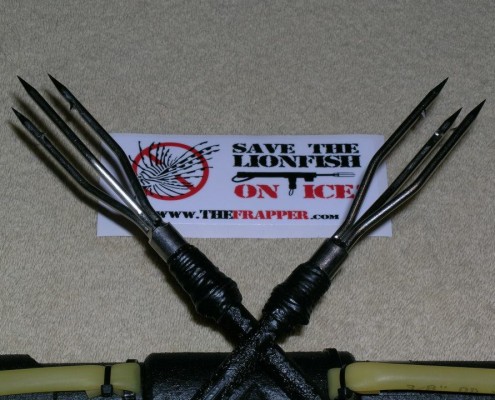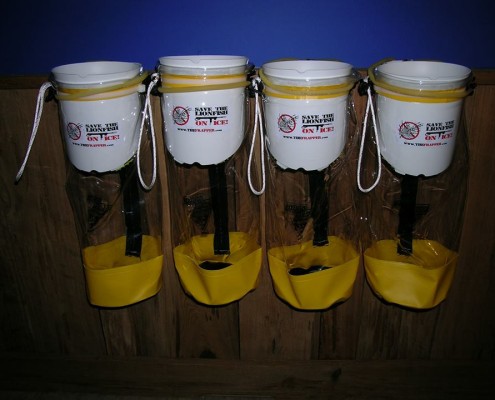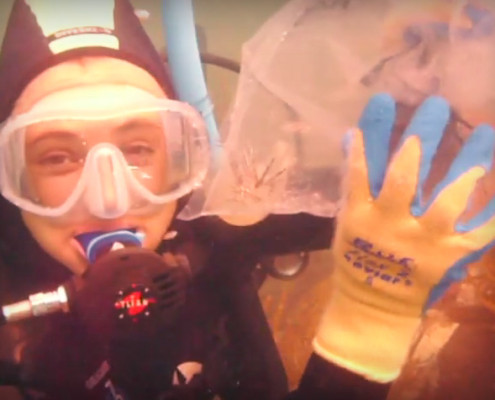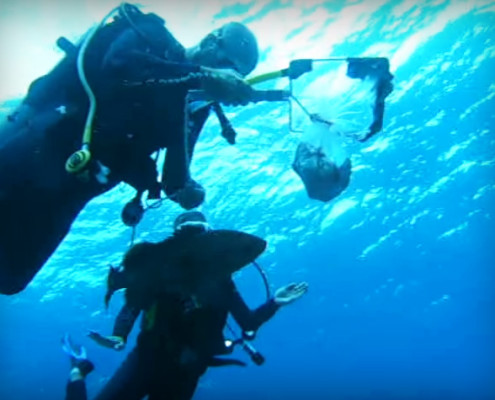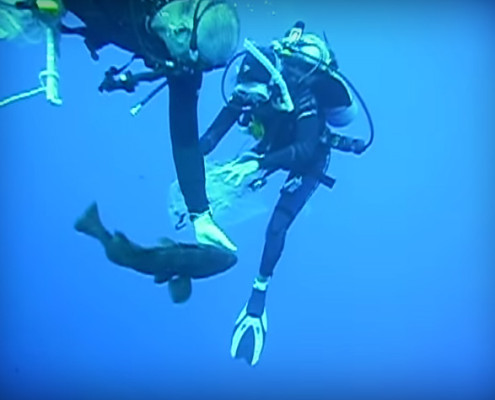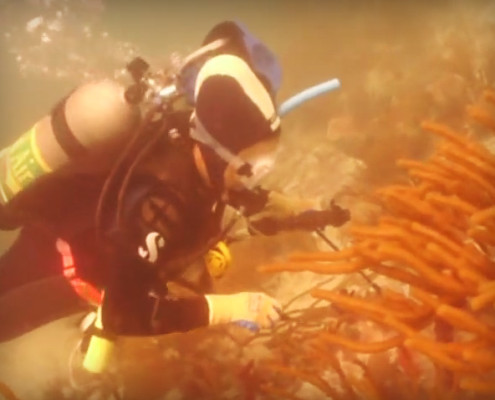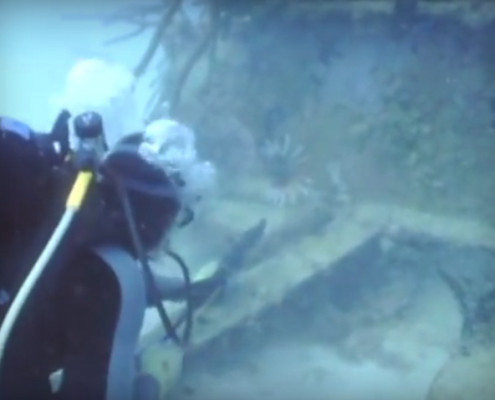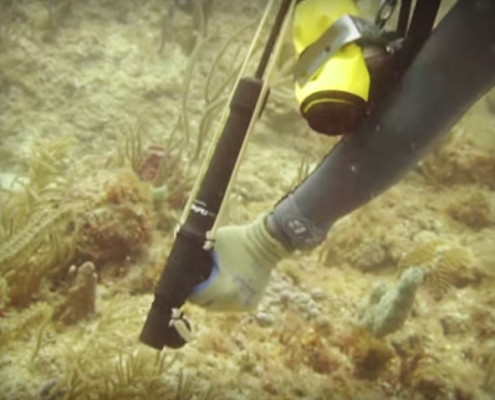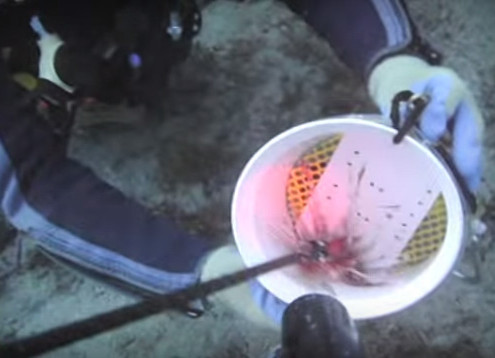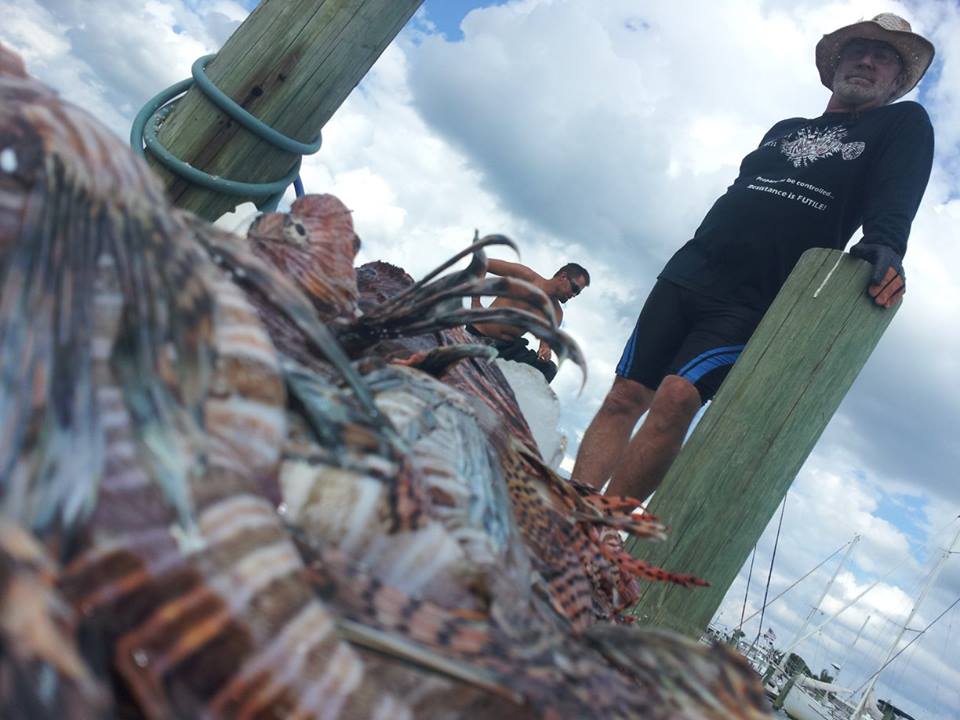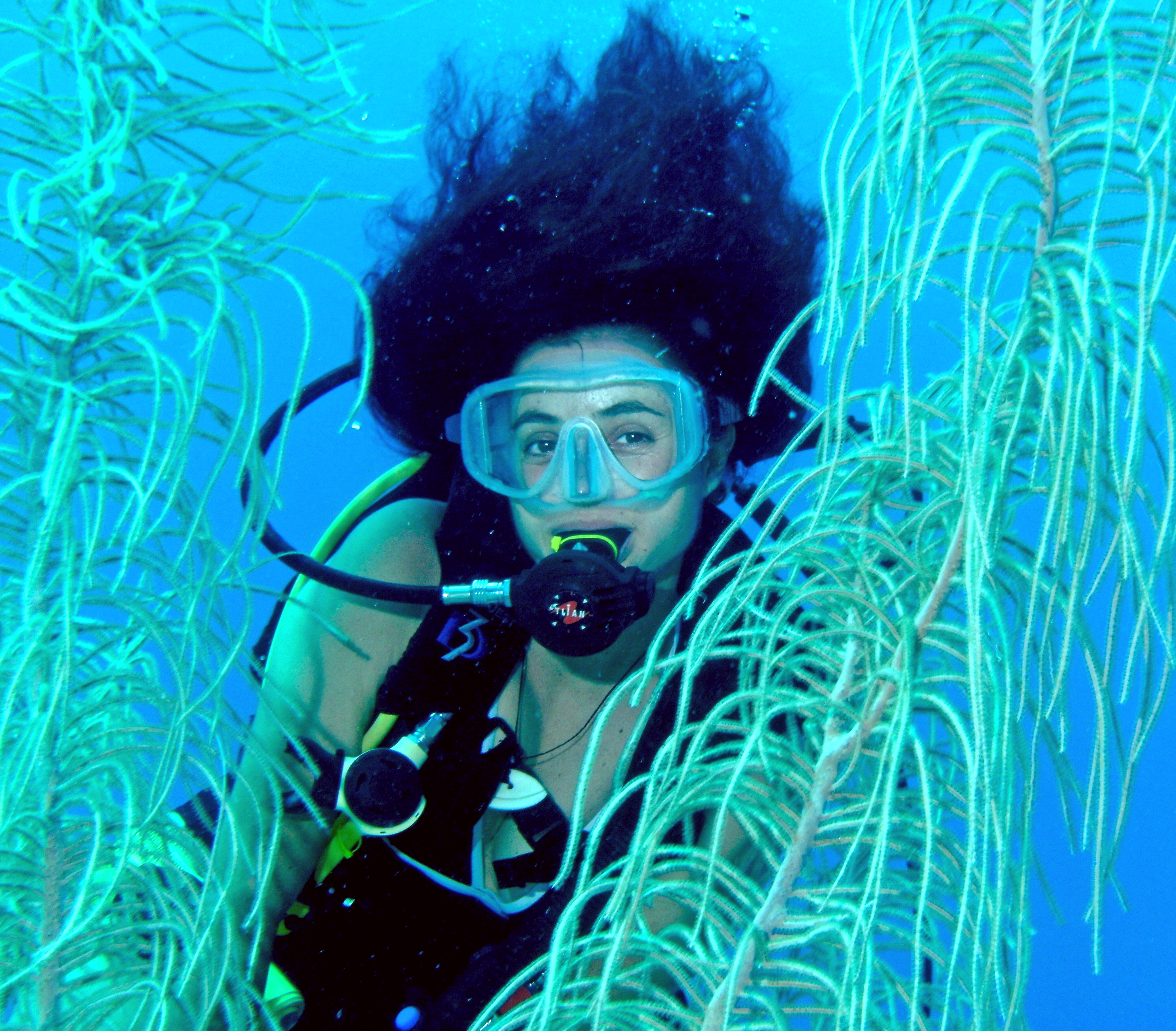The Early Days
Excerpts from a TC Palm newspaper article written by Outdoors Writer, Ed Killer in 2010:
Bob Hickerson and fiancee Maria Andreu have developed a lionfish eradication tool that enables divers to spear lionfish and remove them from reefs without handling the venomous invader. The tool is called The Frapper and it is essentially a mini-spear encased in tubing. Divers can actually strap The Frapper to a leg or clip to a buoyancy compensation device leaving the diver hands free to perform other tasks. Hickerson has applied for a patent and plans to make them available for sale soon.
Bob Hickerson, a Vero Beach general contractor and fiancee Maria Andreu, a dive instructor, are avid divers that met six years ago and share a love for the ocean. As self-proclaimed “proactive environmentalists,” the pair enjoys traveling to favorite tropical diving destinations where they often spend their time photographing the colorful and diverse underwater coral reefs.
But several years ago, they began to see first-hand the small, reddish, zebra-striped lionfish showing up on reefs throughout the Caribbean. Their rapid spread from native Pacific waters has been mapped from Brazil to North Carolina. Naturalists fear the lionfish’s voracious appetite for ecologically important smaller reef fish — as many as 50 other species of fish, according to one scientific report. Also problematic is the ease at which the lionfish can rapidly reproduce — a single female can produce 30,000 eggs every four days or about 2 million during its lifetime (actually, each year! Bob).
